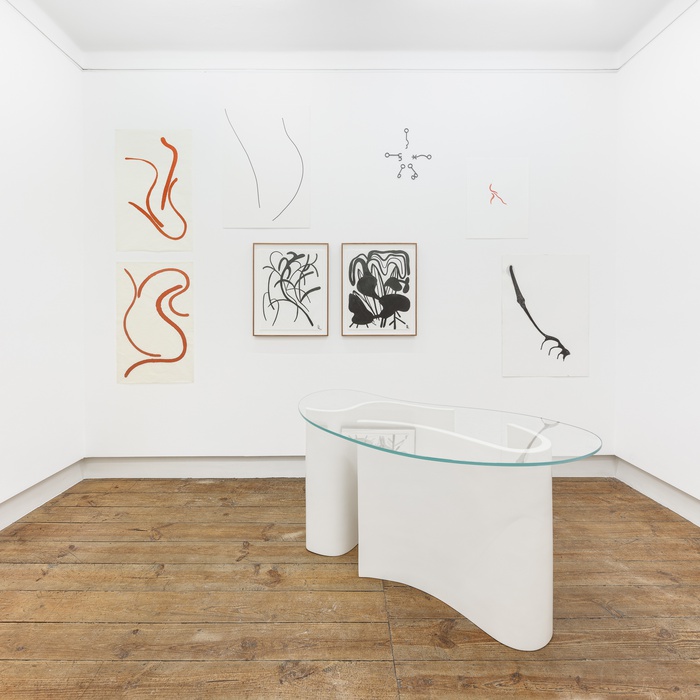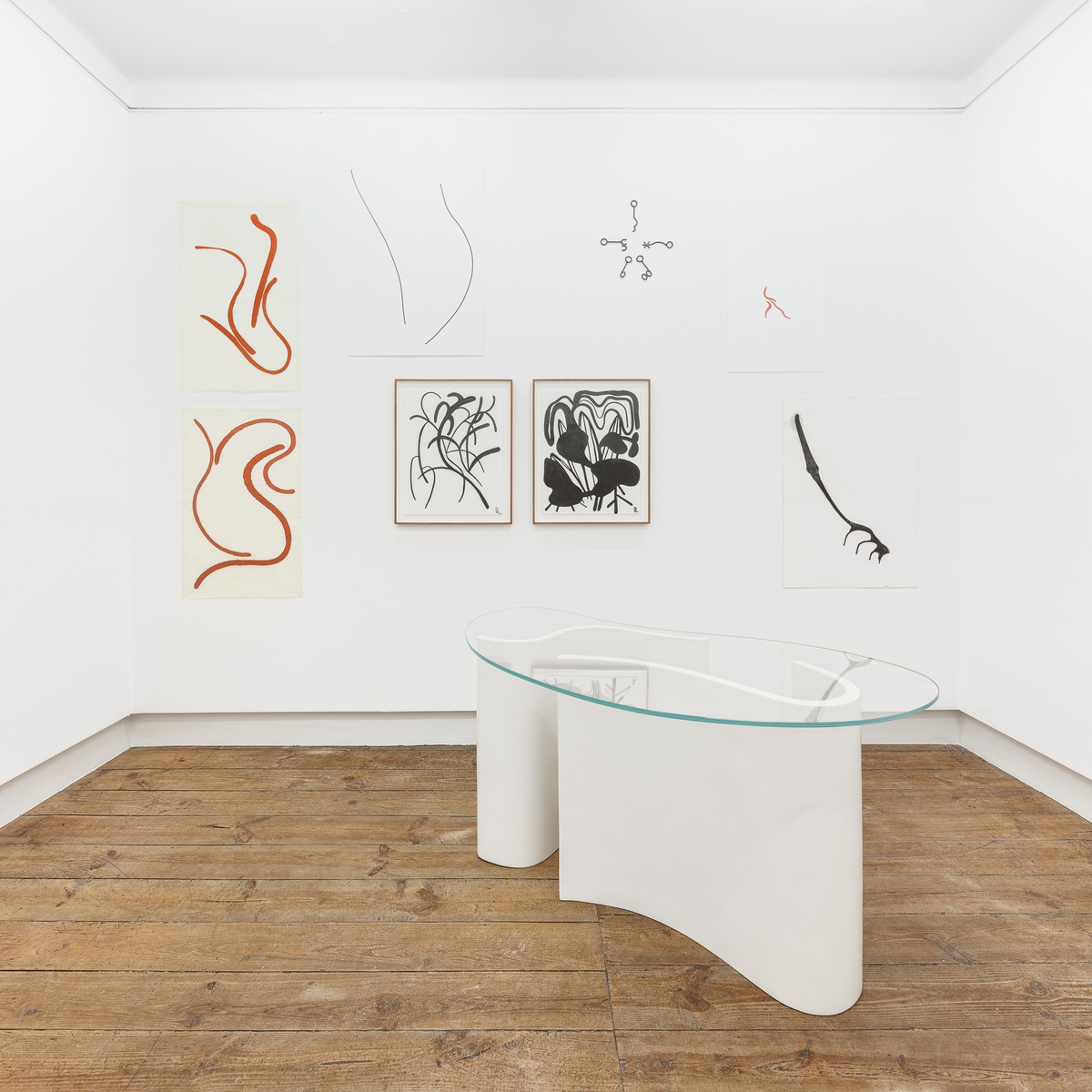

Installation view, Jahn und Jahn, Lisboa 2022
Jahn und Jahn and Encounter are pleased to present Dayana Lucas: Pulso [Pulse]. Born in Caracas, Venezuela, Dayana Lucas currently lives and works in Porto, PT. Despite the location of her studio, it is the varied landscape of Madeira that has provided a constant source of influence. Since childhood, Dayana has spent long periods on the Portuguese island and this time has engendered in her a continuous fascination with nature on both a personal and artistic level.
Lucas’s work straddles the border between the real and the unreal, visual and illusion, the conscious and the unconscious. The interplay between nature and imagination creates multiple landscapes, both visual and imaginative. Pulso [Pulse] launches our Project Space and combines several different bodies of work created between 2016 and 2022, at the project’s core is the symbolism of the perpetual spiral that sets everything in motion.
Material shapes form for Lucas. Her series of paintings “Untitled”, from 2021 and 2022, are created with paint from Dracaena aletriformis. This ancient tree carries multiple mythical and spiritual connotations in part due to its perceived medical properties. The name Dracaena is derived from the Greek word drakaina, a female dragon, perhaps because the milky juice of Dracaena dries to a resinous red powder resembling “dragon's blood”. There is the graphic essence of organic forms in the artist’s compositions in which rhythmic studies of nature become distilled to pure line. Her drawings “Pedra em Flor [Stone in Bloom]” or “Espirito Manual [Manual Spirit]”, from 2018 and 2019, recall those elements of repetition and infinite possibility with a clear intimate tone. The material and psychological intimacy inherent within the work culminates in the artist’s silk-screen print titled “7 para 8 [7 for 8]”, in which she reveals the inked marks on her own skin.
There is a sense that Dayana Lucas has allowed nature, dreams and intuition to take effect and ultimately drive her work. Fundamentally, Lucas offers an invitation to contemplate a profound simplicity only reached through repetition.